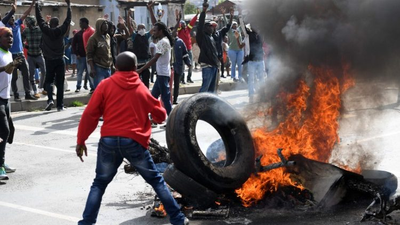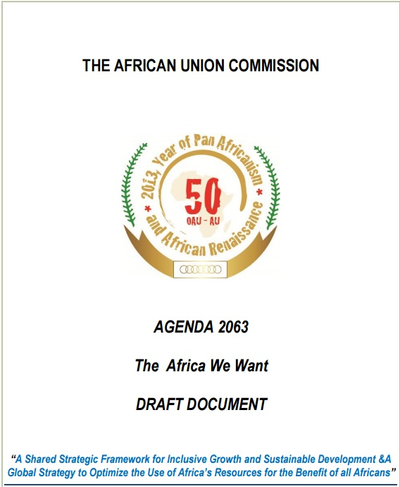At the Paris climate conference (COP21) in December 2015, 195 countries adopted the first-ever universal, legally binding global climate deal. Richard Munang and Robert Mgendi write that the terms of the deal present Africa with an opportunity for long-term sustainable economic growth.
The Paris Agreement is now open for signatures and ratification by member states and as other countries ponder their next move Africa has taken the lead in signing the landmark climate change deal. Over 40 African countries signed the agreement on the very day it was opened for signing in New York and are on course to ratify it. This certainly is the right approach. The continent is the most vulnerable region to climate change and The Paris Agreement requires all countries across the globe to take action against climate change in line with their respective capabilities. It also requires developed countries to support developing countries with capacity building, technology transfer, and financing to enable them to sufficiently implement climate change adaptation and mitigation actions.
By ratifying the agreement, it means Africa can establish partnerships and mobilise support from both state and non-state actors across the globe in a way that will unlock income and economic opportunities. For instance, the Paris deal secured commitments by a global alliance to mobilise up to $USD 1 trillion to finance renewable energy development. Within the frame of COP21, Africa can leverage Article 11 to mobilise these finances, including the Green Climate fund, in addition to appropriate technology and capacity building to support in exploiting its renewable energy potential. Doing so will bridge the energy gap (over 60% of Africans live without electricity) and power sustainable agro-industrialisation. Potentially, this could create up to 17 million jobs annually and contribute as much to $USD1 trillion to Africa’s economy by 2030. Moreover, such an agro sector will reduce poverty two to four times more effectively than any other sector, while ensuring food security. Hence ratifying the Paris Agreement gives Africa an opportunity unlock its own economic opportunities and safeguard its future.
Ratifying the Paris Agreement an act of wisdom for Africa climate change
That said, some analysts argue that Africa’s emissions are negligible and there is no pressing need to ratify the deal. It is worth noting, however, that the Paris Agreement is not just about cutting emissions, it also provides ample opportunities for long-term sustainable economic growth. As an example, Africa can leverage Article 11 to mobilise international support towards unlocking its Ecosystem Based Adaptation (EBA)-driven agriculture. This will simultaneously enhance yields while strengthening ecosystems. Linking EBA-driven agriculture to clean energy and commercial value chains, especially access to finance, will bring with it a host of economic opportunities while also contributing to climate change adaptation. For instance, one large-scale forest regeneration project of 25,000Ha can sequester up to 15.6 million tons of CO2. This directly satisfies climate obligations while also unlocking economic opportunities. A win-win.
Secondly, while Africa’s industrial emissions are negligible, deforestation, soil erosion and other such ecosystems degradation related causes are the sources of Africa’s emissions, and these cannot be overlooked. The continent loses an equivalent of $68bn annually due to land degradation. Ratifying the Paris Agreement will ensure Africa can leverage provisions of the Paris agreement which call on developed countries to support developing countries in meeting their climate obligation, and reverse these losses and create economic opportunities through sustainable agro-industrialisation as earlier stated.
Africa spends $35bn annually to import food, which is still inadequate given 25% of the population still go to bed hungry.
Financing the domestication of the Paris Agreement
The 2nd Africa Adaptation Gap Report documents that Africa needs between $USD 50 – 100bn annually by 2050 for climate adaptation. However, even though the Paris agreement provides support, including financial, to developing countries to implement their adaptation and mitigation actions, depending on international finance is not sustainable for the long run. According to the Inquiry into sustainable financing, a more sustainable financing model, combining both domestic and international sources is what will ensure long-term financing sustainability. Based on an analysis provided by the 2nd Africa Adaptation Gap Report, African countries can domestically raise a minimum of $USD 3 billion annually by 2020 for adaptation actions, through a series of national and continental level levies, cutting wasteful expenditures, leveraging on diaspora remittances that exceed $USD 40 billion annuallyamong other measures.
Optimising Africa’s agro-value chains can also be looked at as a potential source of innovative financing. Inefficiencies along Africa’s agro-value chains, resulting from sub-optimal value addition and degraded lands, are causing both on-farm and post-harvest losses that top $48bn annually. To cover for these losses, Africa spends $35bn annually to import food, which is still inadequate given 25% of the population still go to bed hungry. Optimising Africa’s agro-value chains through targeted interventions will mean saving billions of dollars which could be re-invested in other climate and resilience building activities.
Paris Agreement: an opportunity rather than an obligation
Africa should approach the Paris Agreement as an economic opportunity, rather than an environmental obligation. Such a paradigm can be realised by tying its implementation to highly catalytic sectors capable of simultaneously enhancing economic opportunities and meeting climate obligations. EBA-based agro-industrialisation powered by clean energy is a good starting point. Africa is the most vulnerable region to climate change and all told, the Paris Agreement presents an opportunity for the continent to safe guard its future by unlocking long-term sustainable economic growth which will reduce poverty and ensure food security. A win-win deal for Africa indeed!
Source: This is Africa by Mr Robert Mgendi is the Adaptation Policy Expert; Why Africa should ratify the Paris Agreement





